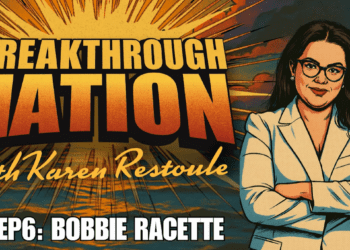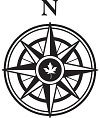In Postmedia outlets in Canada today, MLI’s Alex Wilner discusses the links between Canada’s thwarted terror plot, Iran and Al-qaeda.
What is al-Qaida doing in Iran? Shia Iran seems like an unlikely host for Sunni terrorists, but such collusion does occur when they deem circumstances demand it, writes Alex Wilner.
BY ALEX WILNER, OTTAWA CITIZEN APRIL 23, 2013
With the toppling of the Taliban regime in Afghanistan in October 2001, some al-Qaida operatives found refuge in Iran, writes Alex Wilner.Photograph by: Ebrahim Noroozi , APCanadians once again find themselves at the centre of an international terrorism plot.
On Monday the RCMP accused two men, Chiheb Esseghaier and Raed Jaser, of conspiring to conduct an “al-Qaida supported” terrorist attack in this country. The men, both foreign nationals, reside in Canada. Their apparent targets included VIA passenger trains travelling between Canada and the U.S. Police added that the accused received “direction and guidance” from “al-Qaida elements in Iran.”
Mentioning al-Qaida and Iran in the same sentence has some people scratching their heads. Iran and al-Qaida are greater foes than friends.
Iranian leaders adhere to radical interpretations of Shia Islam. The militant groups Tehran is known to support usually do so as well. Hezbollah is the preeminent example.
Al-Qaida and its supporters, on the other hand, are radical Sunnis who hold militant Salafi/Wahhabi beliefs. They only have contempt for Shia communities. Al-Qaida of the Arab Peninsula, for instance, began a January 2011 issue of its English-language propaganda magazine, Inspire, with a diatribe directed against Shia Muslims. It labelled them — alongside “Zionist-Crusaders” and “apostate (Sunni) regimes” — as the “third side of the triangle of evil.”
So while both al-Qaida and Iran and its militant proxies are hostile to the United States, Israel, and various Arab governments, have orchestrated mass-casualty suicide bombings, and strive for similar political goals, the romance usually ends there. The bloody civil wars that have gripped parts of Iraq, Lebanon, Syria, Yemen and Afghanistan over the past decade have often pitted these two religious communities against one another.
But at times necessity has forced Iran and al-Qaida to bury the hatchet. While Iran’s (and Hezbollah’s) relationship with al-Qaida remains murky and while there are practical, political, and theological reasons why Shia and Sunni extremists may shy away from supporting one another, when circumstance demands it, collusion has occurred.
Both before and after 9/11, Iran has had some dealings with al-Qaida.
According to the 9/11 Commission Report, in the early 1990s al-Qaida and Iranian operatives met in Sudan to hammer out an “informal agreement.” The idea was to support one another in attacks targeting Israel and the U.S. Soon afterwards, “senior al-Qaida operatives” travelled to Iran and to Hezbollah strongholds in Lebanon to receive “training in explosives.” It appears Osama bin Laden was especially interested in a Hezbollah innovation: the suicide truck bomb. Al-Qaida presumably put those lessons to use in 1998 when it bombed the U.S. embassies in Tanzania and Kenya. U.S. investigations found that leading up to these attacks, 10 per cent of the calls bin Laden and other senior al-Qaida leaders made were to Iran.
As for 9/11, the Commission clearly states that there is “no evidence that Iran or Hezbollah was aware of the planning for what later became the 9/11 attack.” But at least eight of the 19 al-Qaida hijackers travelled into or out of Iran between 2000 and 2001. Iranian border guards were even directed not to stamp certain passports, which likely eased the movement of some of the 9/11 terrorists.
And after 9/11, Iran continued to turn a blind eye to al-Qaida. For example, with the toppling of the Taliban regime in Afghanistan in October 2001, some al-Qaida operatives found refuge in Iran. And between his stints fighting U.S. forces in Afghanistan and later, in Iraq, Abu Musab al-Zarqawi, future leader of al-Qaida in Iraq, lived openly in Tehran. U.S. terrorism expert Matthew Levitt has suggested Zarqawi did so “with the full knowledge” of the Iranian regime.
Monday’s arrests in Montreal and Toronto follow recent revelations that Canadians were involved in al-Qaida’s January attack in Algeria and in Hezbollah’s 2012 attack in Bulgaria. Nearly 50 civilians from all over the world died in those incidents. And of course, we’ve only just begun piecing together last week’s homegrown attack on the Boston Marathon, an attack that prompted a tightening of the Canada-U.S. border.
Now we’re contemplating a Canadian connection to an attack that reportedly combines Iran and al-Qaida. While the pairing does seem unusual, there’s plenty of precedent.
Dr. Alex Wilner is a research affiliate with the Munk School of Global Affairs at the University of Toronto and a fellow at the Macdonald-Laurier Institute in Ottawa.





